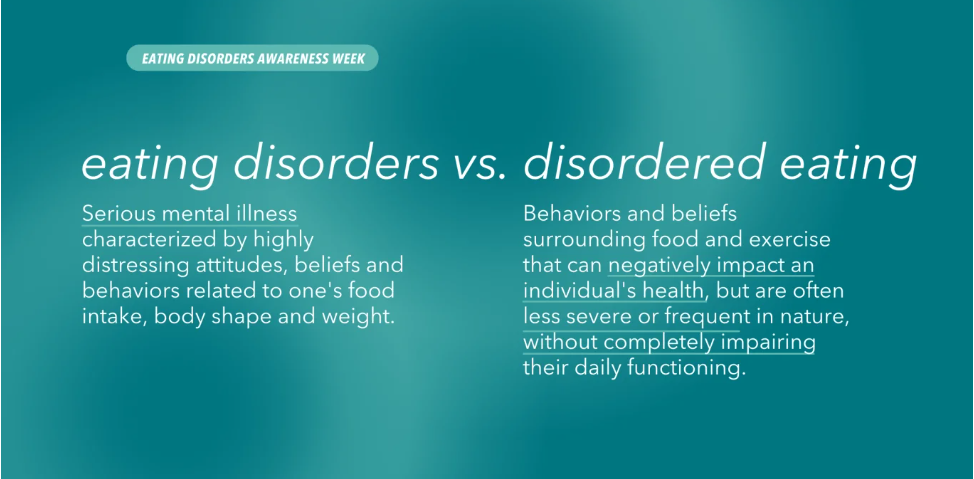Since we are going into the holidays, and it’s all about food, let’s talk about how to be eating disorder friendly this season. If you’re thinking that you don’t know anyone with an eating disorder, don’t stop reading yet. First, know that many people with an eating disorder struggle in silence and those closest to them may not even know. Secondly, eating disorder rates are dramatically increasing- across all ages and genders- so this information may be beneficial to you at some point in the future.
Even if you think no one in your circle is struggling with an eating disorder, the information below will help to keep this season food and body image friendly, while enabling you to support those who may be struggling in silence.
#1 Educate yourself
People with eating disorders do not have a look, size, or shape. Less than 6% of people with an eating disorder are medically underweight1 . Eating disorders:
- are a category of mental illness and are included in the Diagnostic and Statistical Manual of Mental Disorders (DSM-5)
- have the 2nd highest mortality rate among mental illnesses – someone dies every 52 minutes from an eating disorder1
- can (but not always) develop from disordered eating behaviors2. This was the first sign I showed. For those that have never heard the term “disordered eating”, the below graphic2 from The Eating Recovery Center explains it well:

#2 Avoid food and body image talk- both positive and negative
It is only natural for there to be a lot of talk about food around the holidays. This can be triggering for someone struggling with an eating disorder. Things like the below might be stressful:
- commenting about what’s on other people’s plate (or your own)
- discussing what diets you are planning to try in the New Year to balance out all of the holiday food
- commenting about somebody who has successfully lost or gained weight
Comments that may feel normal or even encouraging to some, can be triggering and discouraging to others. Replacing conversations about food and body image with another topic can be freeing. Ultimately, what we eat and what size we are should not define our worth or value.
#3 Implement Traditions that do not revolve around food
One way to help reduce the stress for everyone is to create meaningful holiday traditions that do not revolve around food. This gives the person with an eating disorder something to enjoy during the holiday, without the distress of food.
Below are some ideas:
- hayride and Christmas lights
- gingerbread house making- this is one of my favorite holiday memories
- going to see Christmas shows like the Nutcracker
- playing family games- my cousins and I used to play football in the front yard on Thanksgiving!
Even if no one in your family has an eating disorder, it can still be fun to implement new traditions!
To anyone in eating disorder recovery, I am thinking of you this holiday season. It is normal to feel anxious going into this time of year (I am feeling this way too!) I hope you reach out to your support system and voice your needs this season. I will be doing the same. Recovery is worth it, even on the hard days <3
References:
1“Eating Disorder Statistics.” National Eating Disorders Association, 30 Apr. 2024, www.nationaleatingdisorders.org/statistics/#general-eating-disorder-statistics.
2Clinically reviewed by: Adee Levinstein. (2024, January 11). Disordered eating vs. eating disorders: Know the difference. Eating Recovery Center. https://www.eatingrecoverycenter.com/resources/disordered-eating-vs-eating-disorders
You’re so articule and helpful I love you !!!!